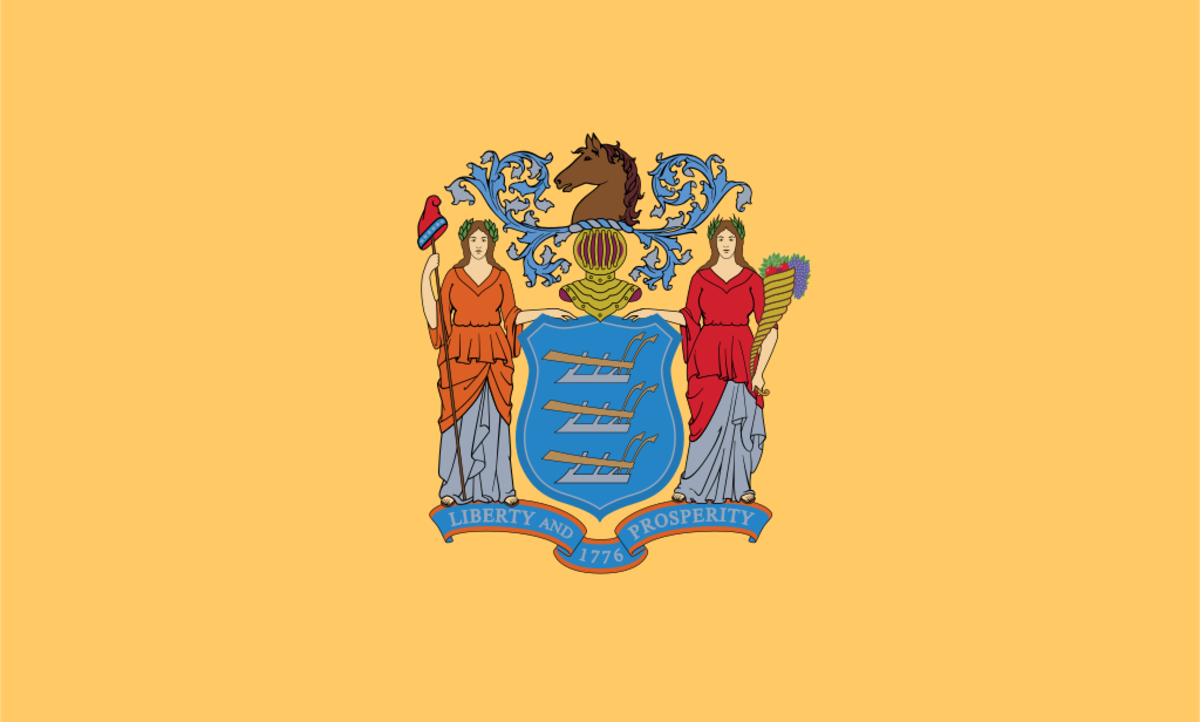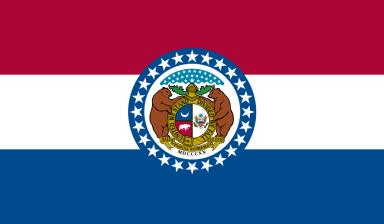New Jersey Employment and Labor Laws

As of September 2023, New Jersey has more than 4.6 million workers, which make up over 60% of the state’s population. Even if the unemployment rate increased from 4.2% to 4.4% compared to the previous month, The Garden State has pretty much maintained its average number of employees for the past few months.
With such a large workforce to oversee and manage, New Jersey has seen its fair share of work-related issues. In 2022, the Equal Employment Opportunity Commission handled 1,270 discrimination charges filed by workers in the state, making up 1.7% of the country’s total charges.
Of these complaints, 617 involved employer-related retaliation, with 437 of them stemming from violations of Title VII of the United States Civil Rights Act. The majority involved discrimination against race, gender, and religion, while some were a result of Equal Pay Act violations.
When these types of incidents occur, workers are given the opportunity to exercise their rights by taking legal action against their employers. To help employees in New Jersey learn more about their individual rights and their rights as members of labor unions, this article will present an overview of the state’s labor and employment laws.
New Jersey’s Wage and Hour Laws
The following section describes New Jersey’s wage and hour laws. Any employer who violates them can face a civil charge and be fined at least $250, with an additional $500 for each subsequent violation.
The Minimum Wage in New Jersey
The official minimum wage for the majority of employees in New Jersey as of January 1, 2023, is$14.13 per hour. This is a result of a law that Governor Philip Murphy signed in 2019 to gradually raise the state’s minimum wage to $15.13 for most employees by 2024.
Meanwhile, seasonal and small-time employers in the state (such as those with six employees or less) are required to pay their workers at least $12.93 per hour. Agricultural workers, who follow a different wage timetable, are paid a minimum of $12.01. Furthermore, direct care staff members in long-term care facilities are given a minimum wage of $17.13 per hour.
In addition, tipped workers in New Jersey must have earnings that meet the current minimum wage; presently, their minimum cash wage is $5.26 per hour, while their employers can get a tip credit worth at least $8.87. If the total earnings of a tipped worker do not match the state’s minimum, their employer is required to cover the difference.
Employees exempt from the minimum wage requirements include:
Part-time workers who take care of children in their employer’s home.
Motor vehicle and outdoor salespersons.
Volunteer workers for a religious or nonprofit organization participating in a fair.
Workers who are under 18 years old and do not have a vocational school graduate permit.
Overtime Pay in New Jersey
Employees in New Jersey who work overtime are paid a minimum wage equal to 1.5 times the amount of their regular hourly wage. This is generally calculated based on the number of hours an employee puts in that exceed 40 hours for every workweek. Employers are not required to pay workers for going over eight hours per day or for any overtime work they do during weekends, holidays, or their days off.
Employees who are not covered by the state’s overtime pay mandate include people who work in a bona fide administrative, executive, or professional capacity and those who work under a common carrier of passengers by motor bus.
Is New Jersey a Right-to-Work State?
Unlike certain states in the country, New Jersey is not a right-to-work state, in part due to the number of labor unions it has. As such, workers are not given the freedom to refuse to join a union, and a union leader can terminate a member for refusing to pay membership or association dues.
On the other hand, being part of a union means that a worker can negotiate the terms of their contracts under a collective bargaining agreement. A CBA also functions as a contract of employment that exempts them from at-will employment rules. Because of this, they cannot be fired for any reason, unlike those who still fall under such regulations.
Sick Leaves in New Jersey
New Jersey has an Earned Sick Leave Law that allows employees to gain one hour of sick leave for every 30 hours of work that they render. Alternatively, employees can have up to 40 hours of paid sick leave up front as a matter of right. Sick leave gives the workers sufficient time to take care of themselves or their family members when needed.
An employer cannot force workers to use all of their accumulated hours of sick leave within the course of a “benefit year” or 12 consecutive months, and they must allow a worker to carry over their hours into the next year. However, employers are not required to let workers exceed the total number of hours that can be carried over beyond the standard 40-hour limit.
Workers begin earning pay for sick leave on their first day of work, though an employer can limit a worker’s ability to claim paid sick leave until they have worked for at least 120 days. An employer is also not required to pay for any accrued and unused sick leave time if their employee resigns.
Is New Jersey an At-Will Employment State?
New Jersey is an at-will employment state, meaning that employers can terminate workers at any time and for any reason, as long as they do not violate any state or federal laws. They can also cut a worker’s wages, demote them, or reduce their paid time off. Conversely, employees can choose to leave their jobs at any time without being penalized.
Generally, under at-will employment rules, an employer in New Jersey can fire a worker for any of the following reasons:
Violations of company guidelines.
Cost-cutting initiatives.
Poor attendance or performance.
Staffing changes.
Repeated customer complaints.
Failure to pass a drug test.
However, an employer cannot fire any worker if there is a contract specifying that they can only terminate employees under specific rules. This contract can be a written agreement between the employer and their employee, or it can be verbal, where the former offers job security to the latter in good faith. CBAs also prevent union members from being terminated under at-will rules.
In addition, a contract can be implied in the sense that even if no agreement was discussed between parties, the company’s handbook or guidelines prevent employees from being terminated under specific circumstances. For instance, a handbook may state that an employer cannot fire a worker unless they have carried out certain disciplinary actions first.
What Qualifies as Wrongful Termination in New Jersey?
As mentioned above, even under the state’s at-will regulations, employers in New Jersey cannot fire their employees if a verbal, written, or implied contract prohibits it. As such, any employer who terminates a worker in violation of such a contract can be charged with wrongful termination. The employee can sue them for damages if this happens.
Under the New Jersey Conscientious Employee Protection Act, employers also cannot terminate employees for refusing to follow any actions that violate public policy. Oftentimes, this involves cases where an employer asks a worker to commit something illegal, such as covering up incidents of workplace corruption or laundering money on their behalf.
Furthermore, the CEPA states that an employer cannot fire a worker in retaliation for exposing illegal activities or concerning issues at their workplace or for testifying against their employer in a case involving such matters. In addition, they cannot fire someone for filing a complaint for suspected misconduct or cooperating with authorities in an investigation.
Other laws, such as the Diane B. Allen Equal Pay Act and the New Jersey Wage Payment Law, also prevent workers from being terminated for exercising their employment rights regarding equal and unpaid wages.
Workers have an additional layer of protection against unlawful termination through laws like the Worker Adjustment and Retraining Notification Act, which requires employers to grant advance notice to employees regarding mass layoffs. Under this law, an employer must also notify workers regarding their severance pay.
In addition, the New Jersey Family Leave Act and the United States Federal Family and Medical Leave Act protect workers from being fired for filing a medical or family leave. A violation can occur if an employer refuses to reinstate their worker once their leave is over.
Lastly, under Title VII of the United States Civil Rights Act and the New Jersey Law Against Discrimination, no employer in the state may unlawfully fire a worker for any discriminatory reason based on the latter’s age, race, gender, sexuality, or nationality. The same laws prohibit them from terminating an employee for being pregnant or having a disability.
How Do You Report an Employer in New Jersey for Wrongful Termination?
An employee who has been unlawfully terminated can file a claim against their employer with either the New Jersey Division on Civil Rights (if their employer’s violation concerns state laws) or the Equal Employment Opportunity Commission (if the violation involves federal laws). If the worker’s claim involves a violation of both state and federal laws, both agencies will investigate and address the matter.
To file a claim with the DCR, a person must submit an intake form either through the New Jersey Bias Investigation Access System or by asking for assistance from a receptionist at 833-653-2748. NJBIAS can be accessed by both English and Spanish speakers; those who speak a different language can send an email to NJDCR4U@njcivilrights.gov for help.
On the other hand, those who wish to file their claim with the EEOC can contact the agency at 1-800-669-4000 or info@eeoc.gov. Those who have difficulty hearing or suffer from deafness can dial 1-800-669-6820 (for a teletypewriter call) or 1-844-234-5122 (for an ASL video phone call).
It must be noted that the burden of proof in a wrongful termination claim falls on the worker. They must present sufficient evidence proving that their employer fired them unlawfully, whether by going against their verbal, written, or implied contract or violating any of the aforementioned state and federal laws. For this, the worker can use their employment contract, the notice of their termination, and any performance evaluations as evidence.
Alternatively, a wrongful termination case can be resolved through mediation, which would allow both sides to avoid higher legal costs and reduce the need for time-consuming proceedings in the courtroom. The EEOC gives people access to information regarding its mediation program and staff members in their respective areas through its website.
However, if a worker intends to pursue and recover damages from their employer, they are more likely to be compensated in full if they file a wrongful termination lawsuit with the state or federal court. This option also offers another way if both parties cannot resolve their dispute through mediation. An employee can represent themselves in a lawsuit, though it is recommended that they get an attorney to assist them in navigating the legal process.
What Is the Statute of Limitations for Wrongful Termination Cases in New Jersey?
New Jersey has varying statutory deadlines for wrongful termination cases, depending on the nature of the employer’s violation. The details of these deadlines are as follows:
If an employer fires a worker in violation of the state’s Law Against Discrimination or the Civil Rights Act, the latter will have a maximum of two years to take legal action. This same deadline applies if the termination stems from a violation of public policy or the New Jersey Family Leave Act.
If the worker’s termination involves a breach of contract, the statute of limitations can last for up to six years.
Under the National Labor Relations Act, workers who have been wrongfully terminated through a breach of union contract can file a suit within six months.
Under the Federal Family and Medical Leave Act, workers can take legal action against employer violations within a maximum of two years, or three if the violation was willful.
Because of the varying nature of these statutes of limitations, it is recommended that an employee approach a lawyer who can help them determine which statute applies in their case. Failing to file a suit or claim within any given deadline can result in the employee’s case being dismissed.
How Much Can Someone Sue an Employer in New Jersey for Wrongful Termination?
The amount of damages that an unlawfully terminated worker in New Jersey can recover may be different from case to case. Generally, they can recover lost wages and benefits, as well as any losses related to legal fees and emotional damages caused by the stress of their termination. Their employer may also be required to shoulder any expenses related to their job reinstatement, relocation, and adjustment, along with punitive damages.
Like with the statutes of limitations mentioned above, the caps on damages in wrongful termination cases often depend on the type of violation that a worker’s employer has committed. For example, for any case stemming from a violation of the New Jersey Law Against Discrimination, there is no general limit to the total amount of damages an employee can recover.
If an employer violates the Diane B. Allen Equal Pay Act by retaliating against an employee’s complaint for unlawful pay, the former must pay up to three times the amount of any monetary damages the latter has incurred. Meanwhile, punitive damages in cases involving the New Jersey Family Leave Act are limited to $10,000.
On the other hand, there are limits imposed if the violation involves federal laws. For instance, according to the EEOC, the amount of recoverable damages depends on the number of employees the employer has, detailed as follows:
$50,000 if the employer has 15 to 100 employees.
$100,000 if the employer has 101 to 200 employees.
$200,000 if the employer has 201 to 500 employees.
$300,000 if the employer has more than 500 employees.
The EEOC also states that victims of intentional age or sex-based wage discrimination cannot recover any compensatory or punitive damages. However, they can still pursue and recover liquidated damages, which are often equal to a worker’s back pay. The New Jersey Wage Payment Law also allows workers to recover their unpaid salary along with liquidated damages equal to two times the amount of these wages.
Resources for Employees in New Jersey
New Jersey Department of Labor & Workforce Development
The New Jersey Department of Labor & Workforce Development is open to workers throughout the state who wish to learn more about local employment and labor laws. Its resources include information on the local labor market and guidelines related to minimum wage, overtime pay, and workers’ rights. Employees can also use the website to file insurance and Social Security disability claims, submit complaints regarding wage violations, and appeal decisions involving their cases. Users can visit the department’s directory to find the contact information of various divisions that can assist them.
Legal Services of New Jersey
Legal Services of New Jersey provides assistance to low-income citizens who are involved in civil law cases, including those concerning employment and unemployment matters. The program can connect people to any of the state’s legal services programs based on their respective locations and needs. Eligible applicants may apply for legal aid through the LSNJ hotline at 1-888-576-5529; there are also instructions on how to apply for individuals and families who speak Spanish.
ABA Free Legal Answers - New Jersey
ABA Free Legal Answers provides people throughout New Jersey with the opportunity to submit inquiries that will be answered for free by volunteer attorneys via email. The legal advice clinic accepts questions involving civil rights, employment matters, and unemployment issues. Once a user’s question has been answered, they can submit further queries. However, its staff cannot refer users to attorneys for legal representation or answer questions related to criminal law.
Expertise.com StaffAuthor
Step into the world of Expertise.com, your go-to hub for credible insights. We don't take accuracy lightly around here. Our squad of expert reviewers, each a maestro in their field, has given the green light to every single article you'll find. From rigorous fact-checking to meticulous evaluations of service providers, we've got it all covered. So feel free to dive in and explore. The information you'll uncover has been stamped with the seal of approval by our top-notch experts.




